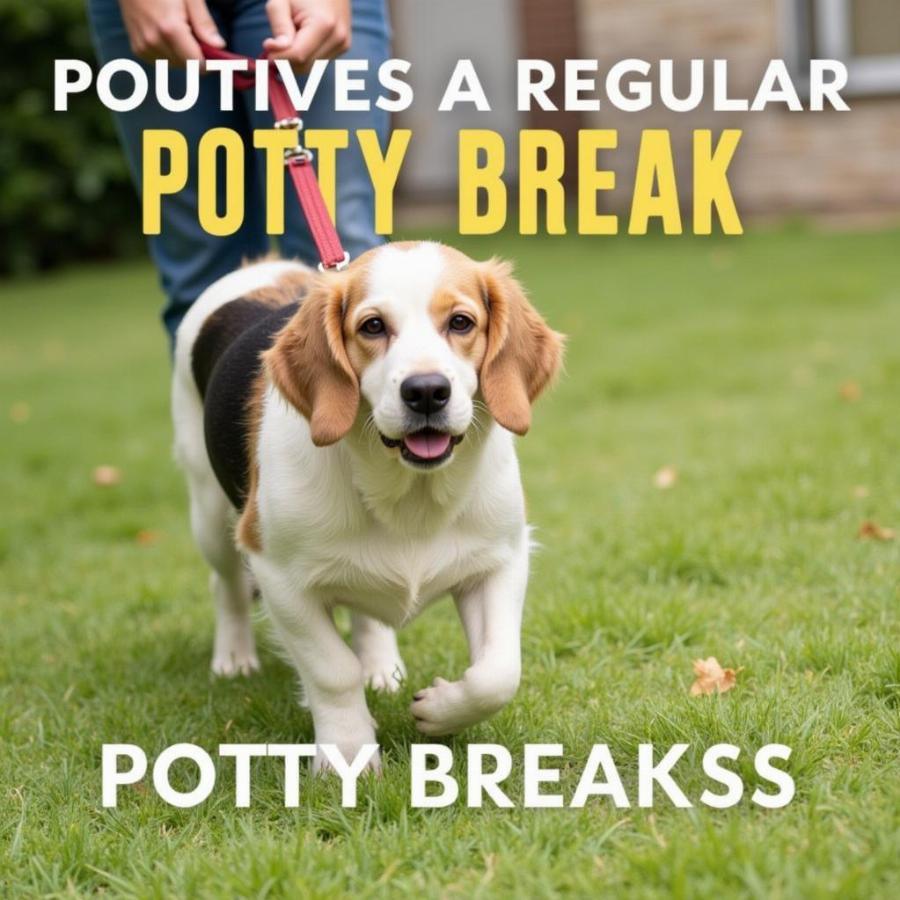The “pooping dog puzzle” can be a real head-scratcher for dog owners. From consistency to frequency, there’s a lot to consider when it comes to your furry friend’s bathroom habits. Understanding what’s normal and what’s not is key to ensuring your dog’s digestive health and overall well-being. This comprehensive guide will delve into everything you need to know about healthy dog poop, from common issues to practical solutions.
What’s Normal and What’s Not: Understanding Healthy Dog Poop
Just like humans, dogs can experience variations in their bowel movements. However, there are some general guidelines to help you determine if your dog’s poop is healthy. Ideally, it should be firm but not too hard, easy to pick up, and a chocolate brown color. The frequency can vary depending on diet, age, and activity level, but most dogs poop one to three times a day.
What are some red flags? Look out for changes in color (black, grey, or bright red), consistency (watery diarrhea or hard, pebble-like stools), or frequency (straining, constipation, or significantly increased frequency). Any of these changes could indicate an underlying health issue, so it’s important to consult your veterinarian if you notice anything unusual.
Why is My Dog’s Poop So Weird? Common Causes of Digestive Issues
Several factors can contribute to changes in your dog’s bowel movements. Dietary indiscretions (like sneaking table scraps or raiding the garbage) are a common culprit. Stress, anxiety, and changes in routine can also impact digestion. Food allergies or intolerances can manifest as digestive upset, as can parasites and underlying medical conditions.
Solving the Pooping Dog Puzzle: Tips for Healthy Digestion
What can you do to promote healthy digestion in your dog? A balanced, high-quality diet is crucial. Ensure your dog has access to fresh water at all times. Regular exercise can also help regulate bowel movements. If you suspect a food allergy or intolerance, talk to your vet about trying an elimination diet.
When to Worry: Recognizing Serious Digestive Problems
While occasional digestive upset is normal, some signs warrant immediate veterinary attention. These include bloody diarrhea, persistent vomiting, lethargy, loss of appetite, and severe abdominal pain. If your dog exhibits any of these symptoms, don’t delay seeking professional help.
How can I make my dog poop regularly?
Establishing a regular potty routine can be beneficial for both you and your dog. Take your dog out for potty breaks at consistent times throughout the day, especially first thing in the morning, after meals, and before bedtime. Creating a designated potty area in your yard can also help. Positive reinforcement, such as praise or a small treat, can encourage your dog to use the designated area.
 Dog on Potty Break
Dog on Potty Break
What if My Dog Eats Poop? Understanding Coprophagia
Coprophagia, or the consumption of feces, is a surprisingly common behavior in dogs. While often harmless, it can be unpleasant and potentially transmit parasites. Several factors can contribute to coprophagia, including nutritional deficiencies, boredom, and anxiety. Consult with your veterinarian to rule out any underlying medical causes and discuss strategies to address this behavior.
Conclusion
Understanding your dog’s poop can provide valuable insights into their overall health. By paying attention to the consistency, frequency, and other characteristics of your dog’s bowel movements, you can identify potential problems early on and take steps to ensure your furry friend stays happy and healthy. Remember, when in doubt, consult your veterinarian.
FAQ
- How often should my dog poop? Most dogs poop one to three times a day.
- What color should dog poop be? Healthy dog poop is typically a chocolate brown color.
- What does watery dog poop mean? Watery diarrhea can be a sign of various issues, including dietary indiscretions, infections, or parasites.
- Why is my dog constipated? Constipation can be caused by dehydration, lack of fiber, or underlying medical conditions.
- What should I do if my dog is vomiting and has diarrhea? Contact your veterinarian immediately as these can be signs of a serious illness.
- Is it normal for my dog to eat poop? While common, coprophagia can be a sign of underlying issues and should be discussed with your vet.
- How can I improve my dog’s digestion? A balanced diet, fresh water, regular exercise, and stress management can all contribute to healthy digestion.
You Might Also Be Interested In:
- dog eating soil
- Why is my puppy vomiting yellow foam
- Why is my dog throwing up undigested food
- How to transition puppy to adult food
Beaut Dogs is your trusted resource for all things related to dog care, offering expert advice and practical tips to help you navigate the wonderful world of dog ownership. From breed information to health and nutrition guidance, we’re here to support you every step of the way. When you need assistance, please contact us at [email protected] (Email address) for detailed and accurate information. Beaut Dogs is committed to providing valuable resources and support to ensure the health and happiness of your beloved canine companion.